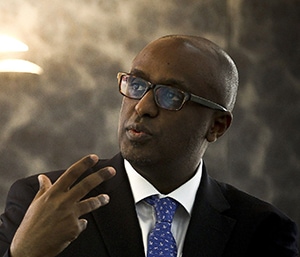The IMF is increasingly worried about Africa's debt levels.
Is rising public debt a threat to Africa’s progress? Recent comments by economists and officials with the International Monetary Fund (IMF)suggest it could be.
Current trends are a worrisome reversal of African nations’ achievements on public debt just ten years ago. In the years leading up to the 2008 financial crisis, debt-relief initiatives managed to cut debt on the Continent by 66%. Since then, the collapsing price of commodities have sent debt soaring in some of the major commodity exporters. In some countries, over-spending returned, reversing—even worsening—the prior trend.

Abebe Selassie |
“Until one of Africa’s big five economies—Nigeria, South Africa, Angola, Ethiopia and Kenya—becomes debt distressed, the alarm bells won’t truly be rung,” Duke University economists Indermit Gill and Kenan Karakulaj opined in a recent paper from the Brookings Institution. They note that only two years ago, alarms were ringing around the debt of smaller economies like Mozambique, South Sudan, Sud and Zimbabwe, but not much has happened since.
Lately, the World Bank and IMF have warned countries such as Ghana, Ethiopia, Cameroon, Kenya and Zanmbia of the risks of letting public debt balloon above 50% of GDP. Troubled Greece, for example, has a ratio of 180%.
Debt is more than 100% of GDP in many African countries, including Cabo Verde, Gambia, and Republic of Congo (Congo-Brazzaville). It is close to 100% in Mauritania and Sao Tome and Principe. Currently only four countries in Africa—Botswana, DRCongo (Congo-Kinshasa), Nigeria and Swaziland—hold debt under 30% of GDP.
Then again, the developed world isn’t setting much of an example. Despite the IMF’s warnings, the US has a ratio over 100%; Japan—the world leader in this regard—has debt of nearly 250% of GDP.
“What is really needed now is to try to capture the return on investments by those governments that invested in road, electricity, water supply, et cetera,” Abebe Selassie, head of the IMF’s Africa department, said at a recent event of Quartz/Invest Africa. Public expenditures should lead to an increase in tax revenue, whether by making the tax base larger, or making it wealthier, or improving tax collection.



